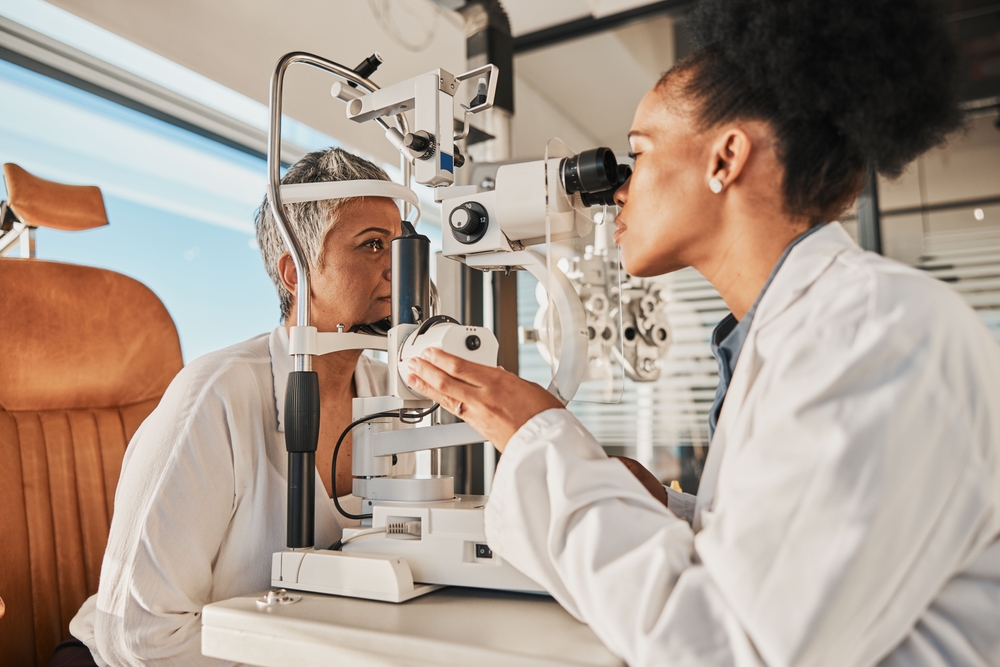Your vision is one of the most important senses. It allows you to see, complete daily tasks, and experience the world around you.
However, many potential risks to your vision could impact your eye health and overall quality of life. Being proactive about your eye health can protect your eyes from the damaging effects of eye conditions, stave off common vision problems, and ensure your vision is clear, sharp, and comfortable.
Keep reading to learn more about the 4 tips an ophthalmologist wishes you knew about eye care.
1. Get Eye Exams Frequently

Routine eye exams are your first line of defense against eye problems. They’re vital for maintaining excellent eye and vision health.
Many people think they don’t need frequent eye exams as long as they can see. However, the reality is quite different, and these are some of the reasons why:
Vision Changes
Subtle vision changes often go unnoticed but can lead to side effects like persistent headaches, eye fatigue, light sensitivity, and eye strain. Regular exams can pinpoint any vision changes and ensure they’re promptly addressed.
They enable your ophthalmologist to update your contact lenses or glasses prescription as needed, ensuring clear, comfortable vision whether you’re reading, using your computer, driving, or performing other activities.
Preventative Measures
Frequent examinations also enable your eye doctor to see the whole picture of your eye health. They’ll look at your medical and family history, age, and lifestyle, which can influence your risk of getting certain eye conditions.
For example, if your family has a history of glaucoma or retinitis pigmentosa, you may be more prone to it. Routine exams enable your eye doctor to assess risk factors, recommend preventative measures to safeguard your vision, and detect any issues early on when treatment is usually most effective.
Monitor Health Conditions
Eye examinations can also help detect many systemic medical conditions such as diabetes, high blood pressure, high cholesterol, heart disease, aneurysms, brain tumors, and cancers of the skin, tissue, and blood.
By examining your eyes, your ophthalmologist can gain valuable insights into your overall health, allowing for timely detection and appropriate follow-up.
2. Timely Detection of Serious Eye Conditions is Crucial
Serious eye conditions like macular degeneration, diabetic retinopathy, or glaucoma could be damaging your eyes without you knowing it. They typically don’t show symptoms until later, when the condition is more advanced and harder to treat.
Without prompt detection and treatment, these conditions can lead to permanent vision loss and blindness. While many eye conditions can go unnoticed in the early stages, they may be able to be successfully managed when spotted early.
Frequent eye examinations by your ophthalmologist at Cheema MD Eye Care allow for the prompt detection of eye conditions before significant vision loss occurs. With timely intervention and appropriate management, the progression of these conditions can be slowed or even stopped, preserving your sight.
3. Keep Fit for Healthy Eyes

Staying physically active not only has a profoundly positive impact on your overall health, but also on your eye health. Regular to moderate exercise can improve your sight and prevent eye conditions such as cataracts, macular degeneration, diabetic retinopathy, and glaucoma.
It can also decrease your risk of health conditions such as diabetes, high cholesterol, and high blood pressure, three of the primary culprits of eye conditions and vision problems. Additionally, regular cardio, especially aerobic exercise, helps lower intraocular pressure or eye pressure, which is critical for good vision.
If you’ve not been active for some time, it’s never too late to begin exercising. Luckily, it doesn’t take a lot of exercise to experience eye health benefits.
Typically, adults require 150 minutes of moderate-intensity aerobic activities per week. That’s approximately 30 minutes daily, five days a week.
Activities such as water aerobics, cycling, brisk walking, hiking, and dancing can help you attain this. In the time it takes to watch an episode of your favorite show, you could safeguard your health and eyesight daily.
4. Eat Right to Protect Your Eyesight

What you put in your body can go a long way towards protecting your eyesight. A balanced diet rich in certain fish, nuts, fruits, and vegetables promotes clear vision and healthy eyes.
It reduces the risk of developing many eye conditions, including cataracts, macular degeneration, retinal vascular occlusion, and diabetic retinopathy. Conversely, foods high in cholesterol and low in essential minerals, healthy fats, antioxidants, and vitamins could put your vision and eye health at risk of sight-threatening eye conditions.
A nutrient-rich diet for healthy eyes includes:
Vitamin A
Vitamin A promotes good night vision and helps maintain corneal health. Spinach, kale, sweet potatoes, carrots, and dairy products are excellent sources.
Vitamin C
Vitamin C is an antioxidant that protects against UV damage. Sources include broccoli, bell peppers, oranges, brussels sprouts, potatoes, and strawberries.
Vitamin E
Vitamin E prevents free radicals, which are unstable, harmful molecules, from damaging eye cells and causing diseases. Spinach, avocado, asparagus, peanuts, soybeans, almonds, and sunflower seeds are good sources of vitamin E.
Zinc
Zinc is a mineral that plays a pivotal role in the formation of melanin, a pigment that can delay macular degeneration and prevent age-related sight loss from advancing. Beef, oysters, pork, beans, chickpeas, peanuts, cashew nuts, and yogurt are high in Zinc.
Zeaxanthin and Lutein
These carotenoids can help minimize the risk of chronic eye conditions. Food sources of lutein and zeaxanthin include egg yolks, shellfish, kale, cabbage, spinach, and bok choy.
Omega-3 Fatty Acids
Omega-3 fatty acids can help with dry eyes and minimize your risk of developing glaucoma and macular degeneration. Sardines, salmon, mackerel, walnuts, chia seeds, and flaxseeds are high in omega-3 fatty acids.
Enjoy a Lifetime of Clear, Healthy Vision
Investing in regular eye exams with your ophthalmologist at Cheema MD Eye Care will pay off by decreasing the risk of many eye conditions and keeping your vision clear, crisp, and healthy for years to come.
Our team of experts can provide the information you need to keep your eyes healthy and screen for signs of eye conditions to preserve your vision and protect your eye health.
Is it time for your next eye exam? Schedule an appointment with Cheema MD Eye Care in Kingston, NY, today!



